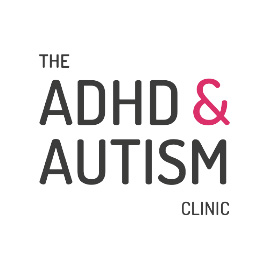Understanding the Intersection of Menopause and ADHD Symptoms in Women
Many women only begin to consider ADHD as a factor in their lives during their 40s or 50s—often triggered by a sudden intensification of symptoms around the time of menopause. It’s a life stage that brings major hormonal changes, and for those with undiagnosed or previously manageable ADHD, it can feel like everything is coming undone.
Despite growing awareness, the link between menopause and ADHD remains under-discussed in mainstream healthcare. This blog explores how menopause affects ADHD symptoms, why it happens, and what women can do to take control of their mental health and cognitive function during this pivotal time.
Get clear and concise ADHD diagnosis information to better understand your symptoms and next steps.

Section 1: Overview of ADHD in Women
ADHD Basics
ADHD (Attention Deficit Hyperactivity Disorder) is a neurodevelopmental condition characterised by inattention, impulsivity, and hyperactivity. In women, especially those undiagnosed in childhood, symptoms often present differently—manifesting as internal restlessness, disorganisation, forgetfulness, emotional sensitivity, and chronic overwhelm.
ADHD in Adulthood
ADHD is lifelong. For adult women, especially those balancing work, family, and societal expectations, symptoms often escalate over time. Many women remain undiagnosed until midlife, attributing struggles to stress or personality traits rather than a medical condition.
Menopause often becomes a tipping point—leading to reassessment and, in some cases, a long-overdue diagnosis.
Section 2: Menopause and Hormonal Changes
What is Menopause?
Menopause marks the end of a woman’s reproductive years, confirmed after 12 consecutive months without a menstrual period. It typically occurs between ages 45 and 55 and includes three phases:
– Perimenopause: The years leading up to menopause, marked by fluctuating hormone levels and irregular periods.
– Menopause: The point when menstruation stops entirely.
– Postmenopause: The years following menopause, when hormone levels stabilise at lower levels.
Hormonal Fluctuations
Estrogen and progesterone levels decline during menopause. Oestrogen, in particular, plays a crucial role in supporting neurotransmitters such as dopamine and serotonin—both of which are key to attention, motivation, and emotional regulation.
Since ADHD is linked to dopamine dysregulation, the drop in oestrogen can act like fuel on the fire—making existing ADHD symptoms more pronounced, or revealing previously masked difficulties.
Section 3: How Menopause Affects ADHD Symptoms
Cognitive Challenges Intensify
Many women describe experiencing “brain fog” during menopause—difficulty concentrating, remembering tasks, and following through on plans. For those with ADHD, these cognitive challenges can become debilitating.
Common issues include:
– Increased forgetfulness
– Reduced attention span
– Greater difficulties with organisation and task completion
Emotional Dysregulation and Mood Swings
Estrogen helps regulate mood. When levels drop, mood swings, anxiety, and depression can intensify. Combine this with ADHD’s emotional reactivity, and the result can be emotional volatility, frustration, and burnout.
Sleep Disruption
Hot flashes, night sweats, and insomnia are common in menopause. Since sleep is essential for cognitive functioning, poor sleep exacerbates ADHD symptoms—reducing impulse control, emotional regulation, and focus.
Section 4: Managing ADHD During Menopause
Medical Interventions
– Hormone Replacement Therapy (HRT) can help balance oestrogen levels and may indirectly ease ADHD symptoms by stabilising mood and cognitive function. However, HRT is not suitable for everyone and should be discussed with a healthcare provider.
– ADHD medications, including stimulants and non-stimulants, can remain effective through menopause. However, hormonal changes can influence how medications are metabolised, so dosage or medication type may need adjustment.
Lifestyle Adjustments
– Nutrition: Diets rich in protein, omega-3s, and B vitamins can support brain health.
– Exercise: Regular aerobic activity boosts dopamine and reduces anxiety.
– Sleep Hygiene: Establish consistent routines, avoid screens before bed, and consider CBT for insomnia.
– Stress Management: Techniques like deep breathing, yoga, or journaling can help calm the nervous system.
Therapeutic Approaches
– Cognitive Behavioural Therapy (CBT) is effective in managing both ADHD and menopausal mood changes.
– Mindfulness-Based Stress Reduction (MBSR) can enhance focus and emotional control.
– Coaching or ADHD-Specific Therapy can provide personalised tools for managing daily life.
Section 5: A Public Face – Carol Vorderman’s ADHD Diagnosis Journey
In 2023, British TV personality and former Countdown host Carol Vorderman shared publicly that she was undergoing assessment for ADHD after years of struggling with mood changes, focus issues, and feeling overwhelmed—challenges that became especially pronounced during menopause.
“I got to my 60s and thought: this isn’t right… I felt like I couldn’t cope anymore.”
Carol Vorderman, speaking to the BBC*
Her openness has helped shine a light on how menopause can unmask ADHD in women, especially those who have spent years compensating without a diagnosis.
Read the full story: [Carol Vorderman: ADHD Diagnosis and Menopause – BBC]
Section 6: Seeking Professional Help
Specialist Support is Crucial
Navigating both ADHD and menopause requires a collaborative and informed approach. Many general practitioners lack training in adult ADHD—especially in women—so seeking out specialists is key.
Tailored Treatment Plans
There is no one-size-fits-all approach. Treatments must be personalised based on hormonal status, symptom severity, co-existing mental health issues, and lifestyle needs.
Conclusion
Menopause and ADHD are both complex—when they intersect, they can create a perfect storm. But with understanding, appropriate care, and the right support, it is entirely possible for women to regain balance, focus, and well-being.
Whether newly diagnosed or managing long-standing ADHD, menopausal women deserve recognition and tailored treatment. The intersection of women’s health and neurodivergence is no longer something to suffer through in silence.
If you’re noticing heightened ADHD symptoms during menopause—or wondering if ADHD might be playing a role in how you’re feeling—speak with a qualified healthcare provider. You’re not alone, and the right support can change everything.
The ADHD and Autism Clinic offers compassionate, specialist support for women navigating ADHD at every life stage.
